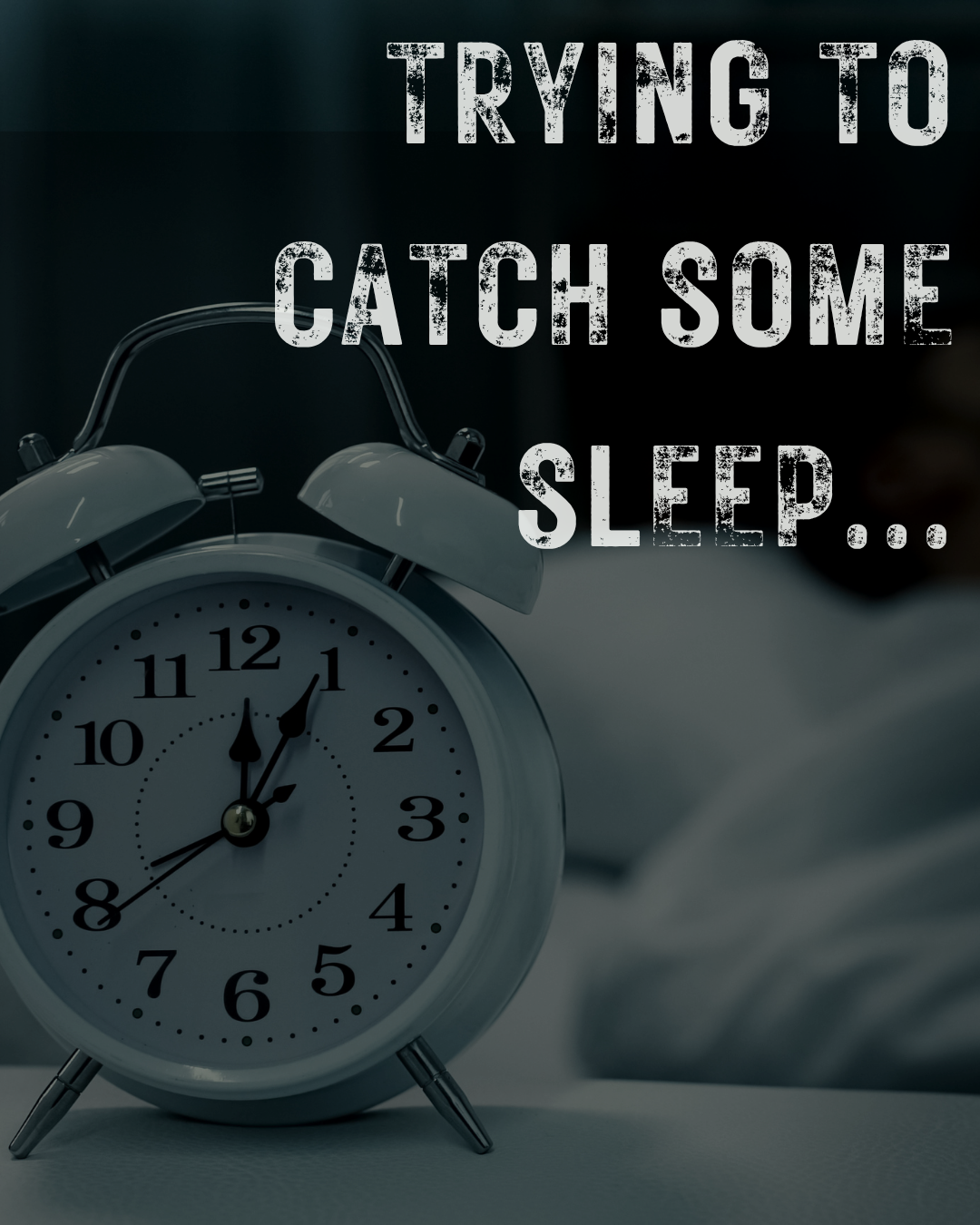
Trying to Catch Some Sleep — But Still Struggling
Share
If you’ve been following along, you might remember that I’ve mentioned my struggle with sleep in a previous episode. It’s been one of those ongoing challenges that I’ve had to work through over time. I'm not a sleep expert by any means, but through trial and error—and a fair bit of frustration—I’ve discovered some habits and tools that have helped me slowly improve the quality of my sleep.
So, if you're also someone who tosses and turns at night, wakes up feeling groggy, or just can't seem to shut your brain off when the lights go out, here are a few things that have worked for me. Maybe they'll help you too:
1. Grounding Sheet (Earthing Sheet)
This one might sound a little "out there" at first, but hear me out. A grounding sheet is designed to connect your body to the Earth’s natural electric charge, which some people believe helps reduce inflammation, lower stress, and promote deeper sleep.
I was skeptical at first, but after a few weeks of using it, I noticed I was falling asleep faster and waking up feeling a bit more refreshed. Whether it's the actual science or just a placebo effect, it’s become a staple in my sleep routine.
2. Invest in Good Pillows
The quality of your pillow matters way more than you think. For years, I was using cheap pillows that offered no support, and I’d wake up with a sore neck or headache. Once I upgraded to a higher-quality pillow suited to my sleep position, the difference was night and day (literally).
Find one that supports your head and neck properly—whether you sleep on your side, back, or stomach. It’s worth the investment.
3. Quilts Be Life
There’s something incredibly comforting about the weight and warmth of a good quilt. It’s like a full-body hug. For me, the right quilt not only keeps me cozy, but it also provides a sense of security that helps quiet my thoughts.
If you’re a restless sleeper, try a weighted blanket or a layered quilt setup. The extra pressure can help calm the nervous system and promote deeper rest.
4. Fan by My Side
I can’t sleep without my fan. It’s not just about keeping cool—although temperature does play a huge role in sleep quality. The consistent white noise helps drown out random sounds that might otherwise jolt me awake.
Plus, I’ve come to associate the hum of the fan with bedtime, so it’s become a signal to my brain that it’s time to relax.
5. Stick to a Consistent Bedtime
One of the best things I did for my sleep was committing to a regular bedtime—even on weekends. It’s not always easy, especially with a busy schedule, but our bodies crave routine.
Going to bed and waking up at the same time helps regulate your circadian rhythm and makes it easier to fall asleep and wake up naturally.
6. Mental Dump Before Bed
I often have a million thoughts racing through my head when I lie down. To combat this, I started doing a “brain dump” in a notebook before bed.
It’s simple: I write down anything I’m thinking about—unfinished tasks, random ideas, worries, things I don’t want to forget. Once it’s out of my head and onto paper, I can let it go. It frees up mental space and quiets the internal noise.
7. Prepare for Tomorrow—Tonight
One of the sneaky reasons I used to stay awake was stress about the next day. Now, I do a quick nightly routine: lay out clothes, pack my bag, make a loose to-do list, and tidy up just a little.
It doesn’t take long, but it gives me peace of mind. I go to bed knowing that tomorrow is already partially taken care of, and I don’t have to scramble first thing in the morning.
8. Lower the Lights as You Wind Down
Bright lights trick your brain into thinking it’s still daytime, which suppresses melatonin—the hormone that tells your body it’s time to sleep.
About an hour before bed, I dim the lights in my house and switch to softer, warmer lighting. Sometimes I even use candles or a salt lamp. It creates a more relaxing atmosphere and tells my brain, “Hey, it's time to slow down.”
9. Change Out of Work Clothes Right Away
This might seem minor, but for me, it’s powerful. As soon as I get home, I change out of my work clothes into something comfortable. It’s a psychological signal that my workday is over and I’m entering rest mode.
It helps me mentally disconnect from the stress or momentum of the day, which makes it easier to transition into an evening routine and eventually, sleep.
None of these habits are magic bullets. I still have restless nights now and then. But building a consistent, intentional sleep routine—layering physical comfort, mental decompression, and environmental cues—has made a real difference.
If you’re struggling with sleep too, you’re not alone. Try one or two of these and see what resonates with you. It’s a journey, but every small shift helps.
Always Stay Warped and Twisted as Ever,
Eve
